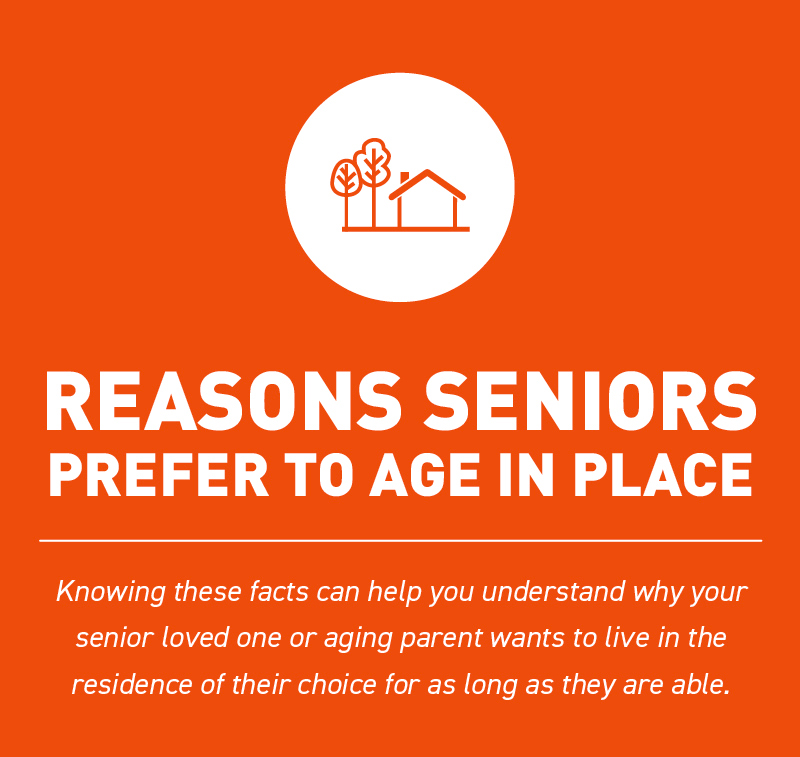Adult children sometimes struggle to help their senior parents determine the best place to live safely and comfortably during their aging journey. Here we discuss what it means to age in place, how to bring it up in conversation, and living options.
What Does Aging in Place Mean?
 Many people think aging in place means staying in their own home. However, it can also take place somewhere else. It simply means the person lives in the residence of their choice.
Many people think aging in place means staying in their own home. However, it can also take place somewhere else. It simply means the person lives in the residence of their choice.
In order for aging in place to work, the senior will need supportive care wherever they choose to live, to ensure their ongoing health and emotional well-being. The care services they need will change over time along with the senior’s shifting health and abilities.
Traditional Homes Can Pose Challenges to Seniors
Many seniors prefer to grow older in their own homes. It’s where they feel comfortable and cherish many years of memories. However, staying in their home can pose challenges.
Older houses may require expensive retrofitting and ongoing maintenance to make them safe for seniors, whose ability to take care of the home will likely diminish over time. Stairs and extra rooms can become cumbersome when mobility issues develop. Families will need to look closely at the home and their ability to make these renovations.
Home care may be necessary as seniors begin to need help with activities of daily living, such as bathing and preparing meals. They may require additional emotional support when they can no longer easily travel or participate in social activities, like attending church or joining friends for lunch.
Because of these challenges, seniors and their loved ones will want to discuss realistic expectations about the years ahead.
An Easier Way to Age in Place
Assisted living is an alternate way to age in place and it’s beneficial to many seniors. Assisted living communities allow seniors to maintain their own private space, while group activities meet their need for friendship and mental stimulation. Additionally, they can provide clinical resources, such as having a Registered Nurse available 24 hours a day, 7 days a week.
As a resident’s health changes over time, that next level of service may be available where they already live. This makes for an easier transition into memory care or long term care, should they need it.
Aging in place in an assisted living facility allows an elderly loved one to remain in a familiar place, with familiar people, throughout their aging journey.
How to Talk to Your Parents About Aging in Place
Broaching this topic with an older loved one may feel challenging. However, it’s important to discuss the wants and needs of everyone involved.
Prepare for the talk by understanding how to start the conversation. Families can begin this discussion anytime, but bringing it up earlier in life allows parents, children, and even grandchildren to make a plan together.
An early start also helps seniors budget for the future. Learning more about senior health care options and costs, as well as payor sources, will help inform the discussion you have with your parents about budgeting.
Marquis helps families understand their aging in place options and the different levels of support they may need in the future. We offer a wide variety of services that meet the needs of seniors physically, mentally, and socially.
To learn more about aging in place, connect with us today.
